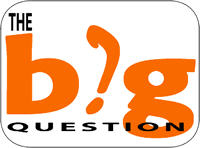Today is the final class in my Business Communication MBA course at NYU Stern. While my students completed their final presentations during our last class on Monday, tonight they will have 2 minutes to prepare and deliver an impromptu presentation.
I thought it may be fun (and potentially useful for other business communication speech professors) to post the topics here. I gathered them from colleagues, online, and my own perspective:
- Explain a business controversy you were part of and how you managed it.
- Tell us who your hero is and why.
- Describe how you responded to an unethical situation.
- What one regret do you have from your college days?
- Tell us about the most surprising thing you will take away from your experience at Stern.
- Discuss your proudest moment.
- What is the best book you ever read?
- If you were tapped by the president to work with inner city schools, what would you do first?
- Who has been your role model in your professional career?
- Recall a time you were glad you listened to someone’s advice.
- Tell us about a time when you discovered your leadership potential.
- Tell us about the most valuable website you have visited.
- Tell us about a time when you used your political savvy to push through a program or idea that you really believed in.
- What was the best vacation you ever took?
- What historical person would you most like to meet?
- Tell us about a time when you had to sell an idea to someone who was not interested
- Tell us about the most remarkable movie you have ever seen.
- Discuss your idea of a perfect day.
- If you can live anywhere, where would it be?
- What is your most vivid childhood memory?
- The expression / slogan / motto that best describes my view of life is…
- What social cause means the most to you?
- What management characteristic or trait would you most like to learn or improve upon?
- Explain how a smart person might not be wise.
- Tell us about the hardest thing you have ever done.
- Tell us how to make a new friend.
- Discuss a way you have helped a colleague.
- If you sang performed with a professional musician, which one would it be with?
- What is your favorite piece of art?
- Do you prefer poetry, drama, or opera?
- What would make the world a safer place?
- What fear have you overcome?
Let’s see, choose a folder piece of paper, and you get one chance to toss it back in if your immediate assessment determines it does not feel right (I do not want this to cause any more stress than we all already have). 2 minutes to prepare. 2 minutes to speak. The rubric will include 5 elements:
Strategy:
- Gets audience attention
- Intent is clear from the beginning.
- Dynamic close leaves audience at high point
Delivery:
- Eye contact and Gestures
- Energy and engagement
I am really looking forward to this . . .
 I really like the ASTD Learning Circuits
I really like the ASTD Learning Circuits